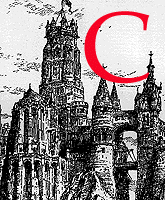 arlyle strikes relentlessly at Britain's wealthy. when he mockingly asks, "Are these your Pattern Men? "Great Men? They are your lucky (or unlucky) swollen big Paltry Adventurers for most part; worthy of no worship; and incapable forever of getting except from the soul consearated to flunkeyism. . . . It is tragically evident to me, our first want, which includes all wants, that of a new Aristocracy of fact, instead of the extinct imaginary one of title, which the anarchic world is everywhere rebelling against. " His attack on the erection of countless statues of an elite group, although serving as catalyst for a serious discussion of universal suffrage, joins in the satirical voice of contemporary Punch columnists.
arlyle strikes relentlessly at Britain's wealthy. when he mockingly asks, "Are these your Pattern Men? "Great Men? They are your lucky (or unlucky) swollen big Paltry Adventurers for most part; worthy of no worship; and incapable forever of getting except from the soul consearated to flunkeyism. . . . It is tragically evident to me, our first want, which includes all wants, that of a new Aristocracy of fact, instead of the extinct imaginary one of title, which the anarchic world is everywhere rebelling against. " His attack on the erection of countless statues of an elite group, although serving as catalyst for a serious discussion of universal suffrage, joins in the satirical voice of contemporary Punch columnists.
One article gave a "Bulletin of the Statue" of the Duke of Wellington: "Wednesday.--The Duke began to stir rather early, though he was not up before twelve. During the day he gave no signs of improvement, though the most bracing remedies were used. His circulation has been very slow. His looks are heavy, and his features are evidently bronzed with care, by the Elder Wyatt, or else the sun" (Punch, 11[1846] 155). The "Enauguration Ode for the Wellington Statue," in the same issue of Punch, finishes with the line, "Then oh! make haste, ye men of taste, and take that Statue down." Carlyle shares with contemporary columnists a general distaste for the wealthy upper-classes and a satirical attitude toward their lifestyle and accomplishments.
Charlotte Brontë also speaks of these classes with a disapproving voice. We see this in the way she depicts the party that comes to spend time with Rochester at Thornfield. Brontë would doubtless have enjoyed the article on "Party-giving Snobs" in Punch:
Good Heavens! what do people mean by going there? What is done there, that everybody throngs into those three little rooms. . .When you catch her eye, you are expected to grin, and she smiles too, for the four hundredth time that night. . .gathered together--a bevy of dowagers, stout or scraggy; a faint sprinkling of misses; six moody-looking lords. . .who never miss a night of this delicious enjoyment" ("The Snobs of England," Punch, 11 [1846] 81).
Brontë and Carlyle, both critical of the aristocracy, hold sentiments common for their time.
"Hudson's Statue," like Jane Eyre, embraces the theme that the aristocracy represents undesirable qualities and ought not to be held up as "worthy of. . . worship." Carlyle shows us this in his vehement denouncement of various statues of the aristocracy. Bronte chooses to make her point by way of Blanche Ingram and Co. who, by the end of the Thornfield section, prove unappealing to the reader.
Carlyle and Brontë use different techniques to attack the moneyed classes. In contrast to his mocking, straightforward attack, Brontë addresses the issue more subtly. Observations made by Jane throughout the section of the party at Thornfield present an unflattering image of the upper class:
she [Miss Ingram] need not coin her smiles so lavishly, flash her glances so unremittingly, manufacture airs so elaborate, graces so multitudinous. . .but the longer I considered the position, education, &c., of the parties, the less I felt justified in judging and blaming either him or Miss Ingram, for acting in conformity to ideas and principles instilled into them, doubtless, from their childhood. All their class held these principles. [p.165]
Although Jane does not condemn Blanch Ingram. Rochester, and the rest of the party individually, she disapproves of the principles of the upper class as a whole. Although they use different techniques, Carlyle and Brontë produce the same effect.
Last modified 23 October 2002